When Will Apple Be On Board With Pwa Progressive Web Apps
Earlier this month, the indie developers Feross Aboukhadijeh and John Hiesey launched a new app called Wormhole, which lets users quickly share large, encrypted files with just a link. But unlike most new mobile apps, Wormhole doesn't show up in Apple's App Store or the Google Play Store.
Instead, Aboukhadijeh and Hiesey released their app exclusively on the web. You can run Wormhole in any browser, and if you use the "Add to Home Screen" function in Safari for iOS or Chrome for Android, the site becomes indistinguishable from a native app.
Aboukhadijeh says that Wormhole has a long list of reasons for skipping mobile app stores, including the ease of developing for the web and the lack of platform gatekeepers to worry about. But for him, targeting the web is also just a matter of principle.
"We want to be an example of what a modern, fast web app can do," he says. "And we want to blow a few minds while we're at it."
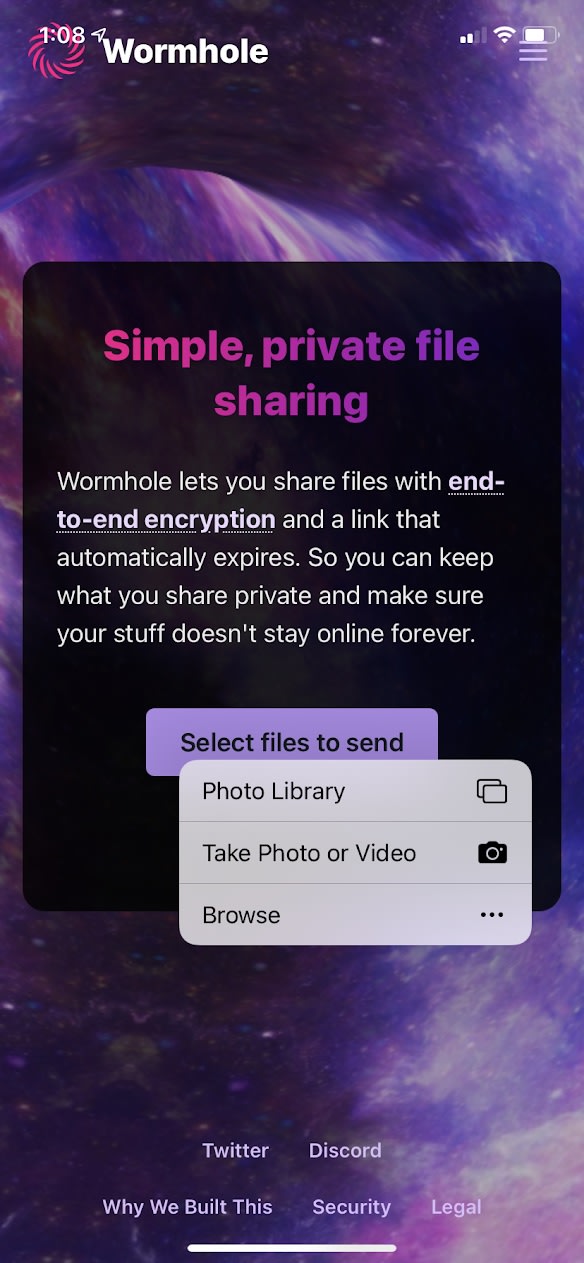
That mentality clashes with the decade-old conventional wisdom that developers should build mobile apps first, if not exclusively. Still, the web-first approach is one that some developers have been rediscovering as discontent with Apple's and Google's app stores boils over. Launching with a mobile app just isn't as essential as it used to be, and according to some developers, it may not be necessary at all.
Meet the web app diehards
Aboukhadijeh isn't alone in skipping the App Store in favor of building a web app. Another example is 1Feed, a customizable news reader for catching up on your favorite websites, Reddit pages, or social media profiles.
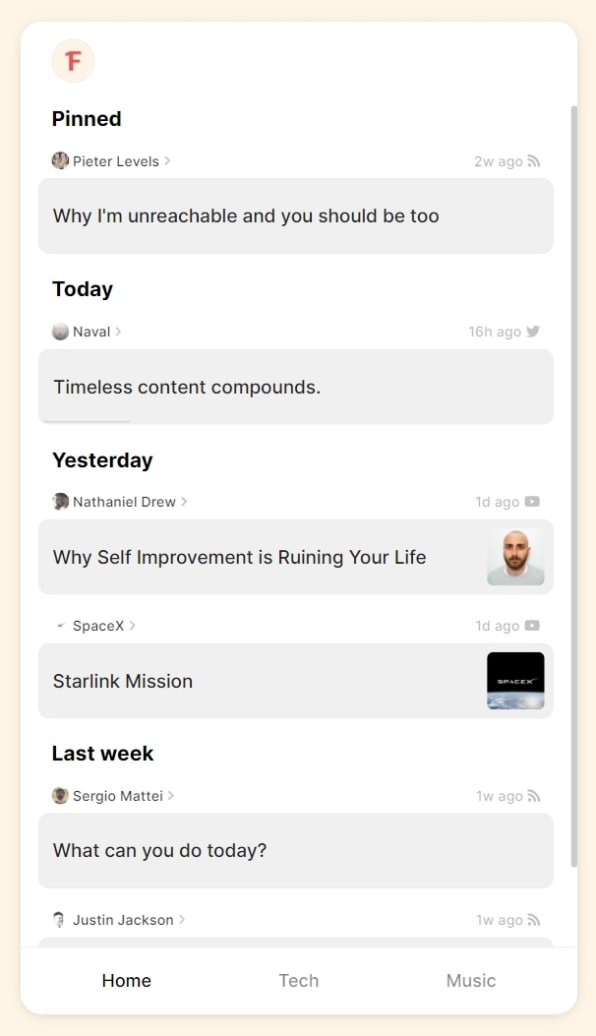
Like Wormhole, 1Feed isn't available in any app store, but you can install it on your home screen in Safari, and if you visit the site in Chrome—on either a computer or an Android device—you'll see a prompt to add 1Feed to your home screen or dock. You can even use Android's Share button in other apps such as Twitter and YouTube to add new sources to the feed.
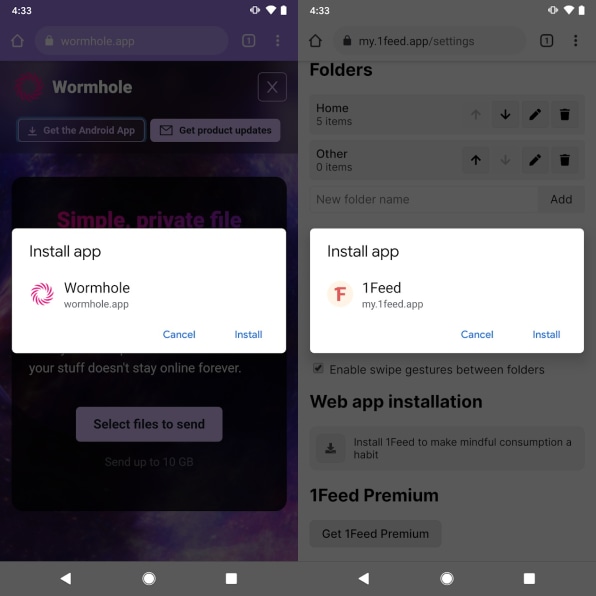
1Feed is the work of a 17-year-old developer from Australia named Ethan—he declined to give his last name—who says that publishing 1Feed in an app store isn't worth the trade-offs. For one thing, his age presents a barrier: Apple's developer program is only open to people who are 18 or older. More importantly, he's unwilling to give up a cut of his subscription revenue or wait for app store approvals. (Ethan charges $5 per month to unlock more news items per source and other extra features.)
"I just don't see the privilege of being on these app stores as worth 15% of my revenue and being subject to the whims of some app store reviewer," Ethan says, referring to the cut Apple takes from developers who make less than $1 million per year. (Otherwise, Apple's cut is 30%, falling to 15% for subscriptions that last for more than a year.)
The cost of going mobile
Apps such as Wormhole and 1Feed are obviously outliers in that they may never hit the App Store, but even developers that plan to release mobile apps someday have plenty of reasons to launch on the web first.
Aashni Shah, the founder and CEO of HypeDocs, says she launched with a website in part because of her background in web development, but also because mobile apps are much more cumbersome to build. HypeDocs, which helps people celebrate their personal and professional milestones, launched in July of last year, and Shah is still testing new ideas such as public achievement pages. On the web, she can test those ideas instantly, but on mobile, they'd have to wind through the approval and update process.
"My thinking is, there's a lot of experimentation, a lot of testing out new features that may or may not work," Shah says. "Those things are much easier to build and test on a website, where as soon as I push the code it goes out to everyone."
Sergio Mattei of Makerlog, a site where developers can publicly log their daily tasks, says these advantages are especially pronounced for independent developers, who don't have the resources to build and maintain apps for multiple platforms such as both iOS and Android. While some tools do exist for building apps across operating systems, Mattei says having a single web app is still simpler and easier.
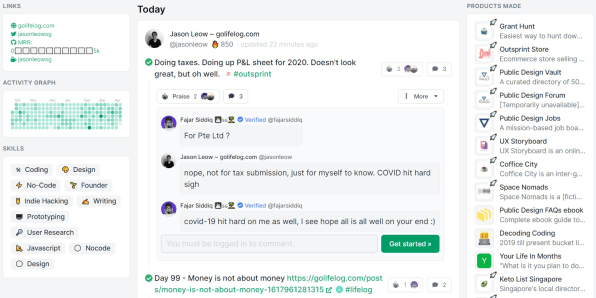
"Even if I use a technology that bridges the gap between web and mobile, it's still going to be a massive pain," he says. "It's more work that I need to do aside from monitoring the community and building and marketing. It's a huge commitment, and it's generally a commitment I can't take on as an indie maker."
Some developers also just don't see mobile device support as the immediate necessity it once was. Reclaim.ai, a service that helps users block out time on their calendars for daily habits and focused work, launched last year without a mobile app, and the developers say they have no plans to release one for at least another year. Instead, users can set up habits on the web, then rely on integrations with Google Calendar, Slack, or Google Tasks to get notifications on their phones.
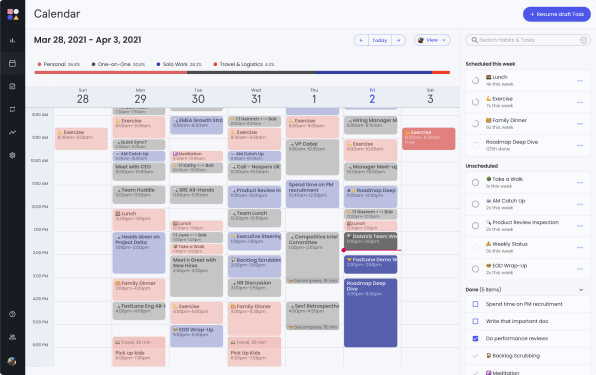
"All of those things have good mobile experiences already," says Reclaim cofounder Patrick Lightbody, "so we took a product design philosophy of saying, 'Let's make all those things work really well together with Reclaim, and lean into existing workflows."
And yes, there's a pandemic angle to all of this as well. With more people working from home at the moment, developers may not feel as much pressure to create mobile versions of their productivity tools in the first place.
"A big part of the value proposition of a mobile app is 'Do this thing on the go,' and a lot of people aren't on the go right now," says Henry Shapiro, another Reclaim cofounder. "It's a safe assumption that your user will be able to get to a desktop relatively quickly."
An Apple-sized elephant in the room
There's just one problem with this zeal for web apps: On iOS, Apple doesn't support several progressive web app features that developers say are necessary to build web apps that offer all the power and usability of a native app.
iOS web apps, for instance, can't deliver notifications, and if you install them on the home screen, they don't support background audio playback. They also don't integrate with the Share function in iOS and won't appear in iOS 14's App Library section. Android, by contrast, supports most of those features, and even allows websites to include an "Install App" button.
It's hard to see Apple's decisions here as anything but outright hostile to the web."
Feross Aboukhadijeh, Wormhole
Wormhole's Aboukhadijeh points to another iOS limitation that's especially burdensome for his app: Safari only lets web apps use up to 1 GB of temporary storage space, after which users must approve additional storage in 200 MB increments. A user who wanted to share a large file—or, perhaps, edit a large video with web-based tools—would therefore have to repeatedly tap on a prompt to make enough storage available.
"Needless to say, this is totally ridiculous and definitely not an API that Apple would ever find acceptable to ship for native iOS apps," he says.
Those restrictions, he adds, are especially ironic given that Apple has held up web apps as an example of competition on its platform. In response to an antitrust complaint in Australia, Apple noted that progressive web apps "eliminate the need to download a developer's app through the App Store (or other means) at all." What Apple fails to mention, Aboukhadijeh says, is that Apple controls what functionality web apps are allowed to have, and that functionality is far more limited.
"It's hard to see Apple's decisions here as anything but outright hostile to the web and designed to push developers into making native apps," he says.
It's possible that iOS 15, which will presumably be unveiled in June at Apple's WWDC virtual conference, will address some of the limitations of web apps. But even if Apple does allow web apps to become more capable, developers would still have to contend with stubborn user habits, which often involve searching for an app in the iOS App Store or the Google Play Store. Preetam Nath, cofounder of the simple habit-tracking app DailyHabits, says that while he's happy with the web experience on mobile devices, a mobile app is still in the works.
"We want to . . . optimize the app experience further for mobile users," he says. "But to be honest, the bigger reason would be to try and tap into all the search traffic happening inside Play Store and iOS App Store, where people are already looking for 'habit tracker' apps."
In other words, web app makers face a bit of a vicious cycle. If Apple doesn't make web apps more capable, developers will eventually feel like they have to create native mobile apps even if they'd prefer not to. That in turn just reinforces the idea that if you want to find an app, you need to search for it in an app store.
Still, Ethan is optimistic that things will start to change, especially as more developers debut their work on the web. "If there are more high-quality, well-known web apps out there, that can really shift it," he says.
When Will Apple Be On Board With Pwa Progressive Web Apps
Source: https://www.fastcompany.com/90623905/ios-web-apps
Posted by: buttontintles.blogspot.com

0 Response to "When Will Apple Be On Board With Pwa Progressive Web Apps"
Post a Comment